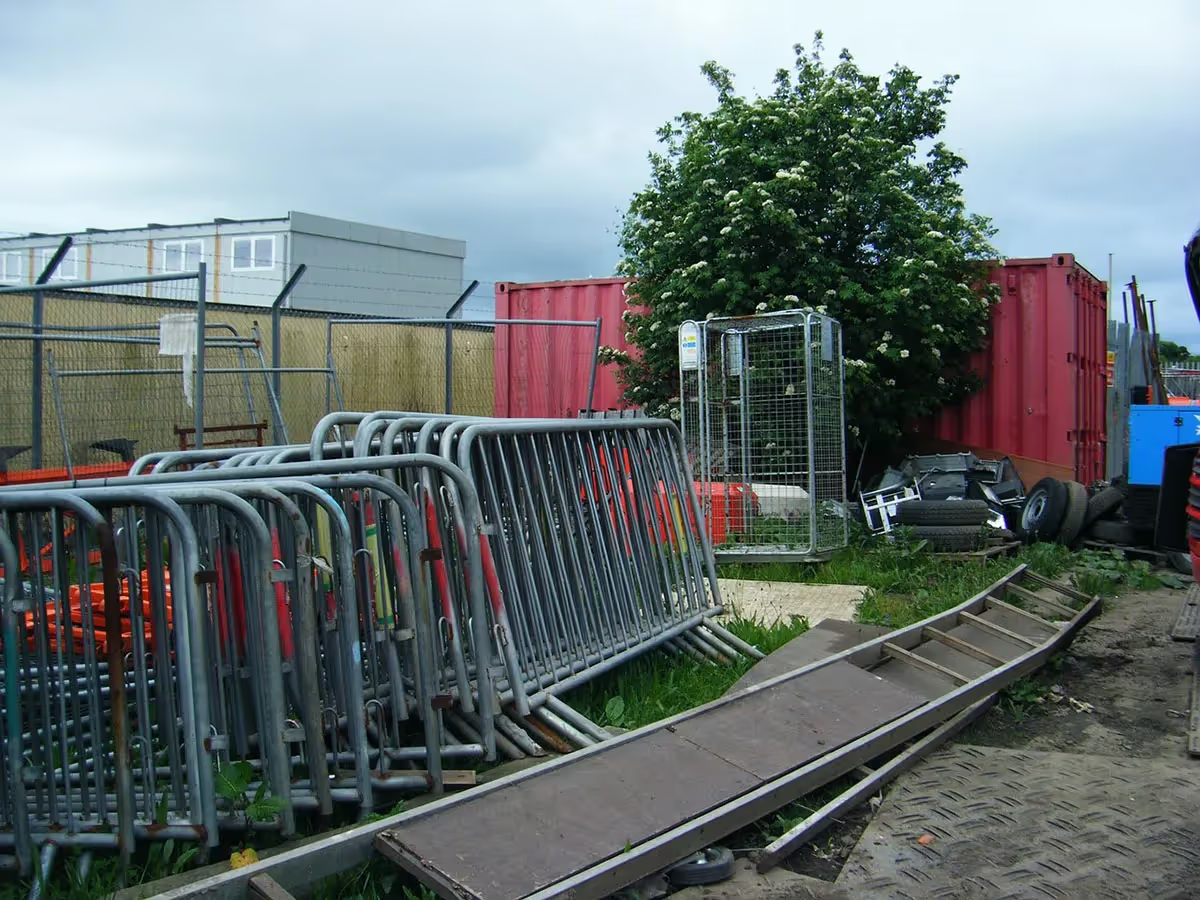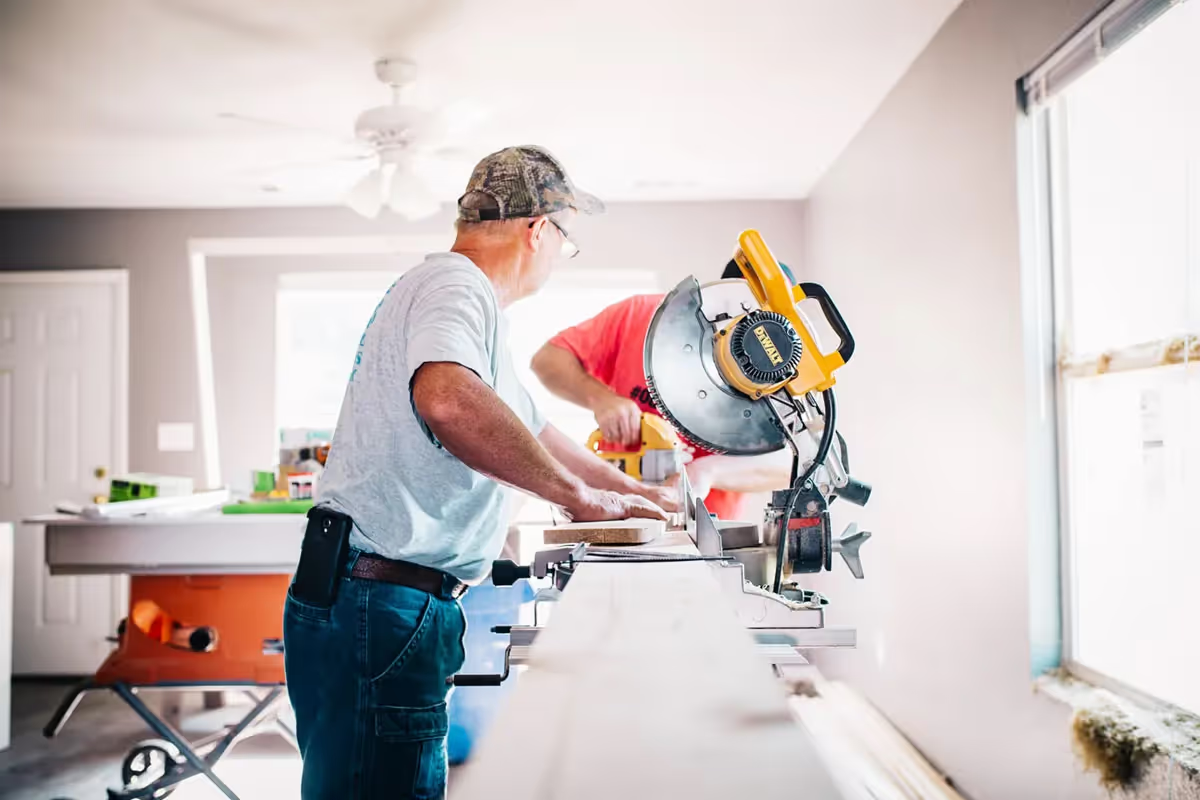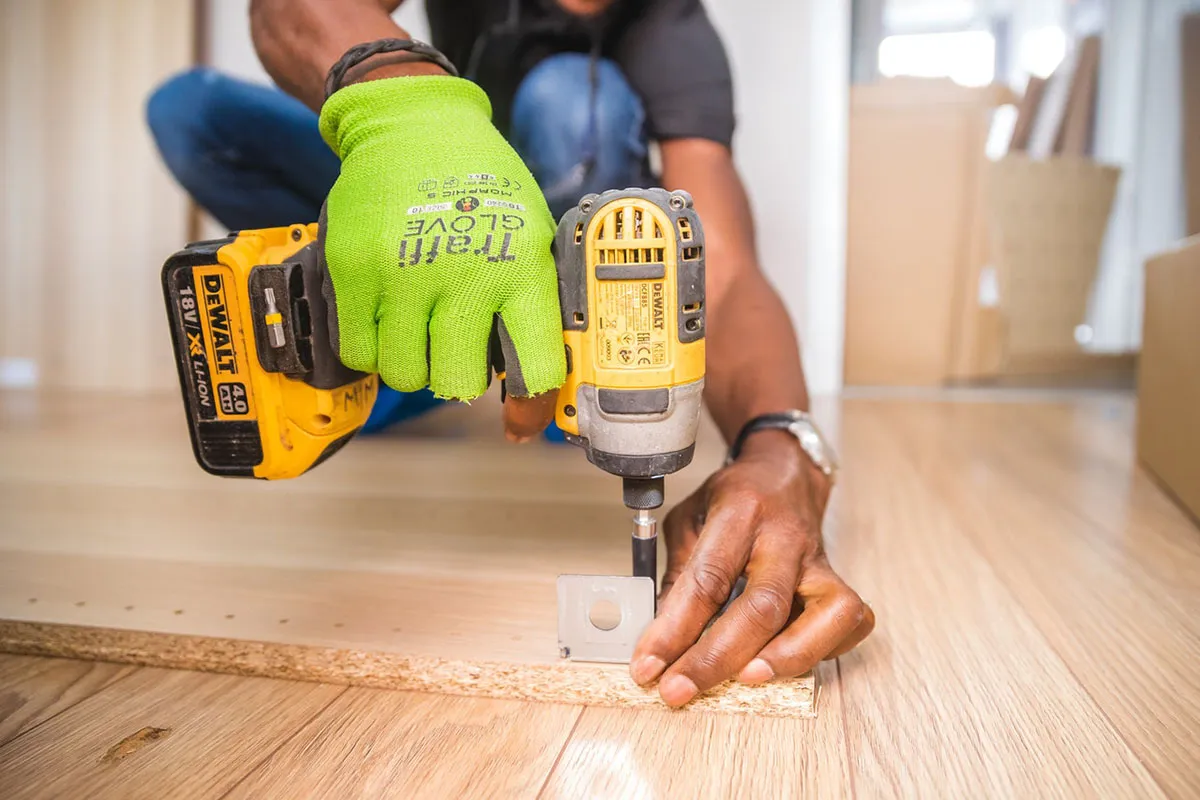Looking to open your junk removal business? Then you’ve come to the right place. This article is jam-packed with details that will come in handy for setting up your junk removal business.
Junk removal may seem like a lucrative business, but it's only a good option for those who aren’t afraid to get their hands dirty in the process. Not everyone is cut out for this kind of business!
Junk removal is hard work. Chances are you might end up cutting yourself more than once or twice. Plus, the exhaustion at the end of the day might be too much for some to handle.
Still reading?
Then, you might be just the right person for the job. Here, we have the answer to the question of how to start a junk removal business.
The junk removal business isn’t just about going around searching for metal things and putting them in the back of your car. There are various things that you have to consider, and we’ll help you with that in this step-by-step guide. Let's get to it!

1. Do Ample Market Research
The first and most important early step in setting up a junk removal business is to study the market you’ll be entering. Look for local junk removal services and find out the reasons for their success.
Your research should not be limited to independent junk removal companies. You need to widen your horizons and study larger junk removal businesses, too.
Other than this research, you need to analyze what kind of junk removal services are available in your market. From selling scrap materials to landfilling, the scope is pretty vast. Decide whether you want your junk removal business to focus on one service or if you want to offer multiple services.
It might sound obvious, but we suggest considering only those services which are in demand in the area you wish to operate. A key role of market research is figuring out what these services are.
2. Build Your Brand Identity
You have to compete for market share no matter which area you work in. The way to accomplish this goal is by setting your brand apart from the competition.
How will you do that?
It’s simple: make your junk removal business unique. Create a recognizable name for your business. It should be memorable, so that it will help build trust in your customers when your service is recommended. The main target should be to stand out from your competitors.
The next step is to create a catchy tagline that your customers can remember. To top it off, consider creating a jingle. Research shows that a jingle is the fastest way to make your brand known among people.
3. Develop a Business Plan
Now that your brand identity is sorted, the next step is creating a business plan.
Wondering what a business plan is and how to create one?
A business plan summarizes the financial and operational objectives of your business. It has all the details and the methods you’ll use to reach your company’s goals. Your business plan should factor in the following:
- Calculations of transportation costs, marketing, and taxes, as well as license requirements. (Ensure that your junk removal business follows all local, state, and federal laws, or you may have to pay some hefty fines.)
- Whether you wish to open an office or plan to operate through social media/website.
- Calculation of disposal costs. (What materials will go to the landfill, be recycled, sold for scrap, or be given to charity?)
- Will your business be limited to residential junk removal, or will it involve commercial debris?
- A list of operational days, including days when your employees will get time off.
4. Purchase the Right Vehicles, Tools, and Equipment
Starting your junk removal business from a pickup truck is possible, but it's not the ideal option. It limits the size of the jobs available to you and therefore also limits your profits.
Pickups tend to have limited space. They’re good for hauling small electronics or odd pieces of scrap, maybe even mattresses, but larger jobs will need multiple trips, costing more in time and fuel. Making sure your vehicle is fit for the job you want to be doing is necessary to succeed in a junk removal business.
Next comes picking the right tools and equipment. You’re going to need:
- A shovel
- An Industrial broom & dust-pan
- Trash buckets
- Garbage bags
- Safety work gloves
5. Build Your Team
The junk removal business is quite lucrative, but it's impossible to earn efficiently if you do everything yourself. Frankly, one person will not be able to perform all the necessary tasks.
The simple solution to this issue is to hire qualified people. Your employees should be able to quote jobs and load junk on your behalf. Over time, train these employees to be team leaders.
Your employees should also be focused on fixing any issues so that your customers are happy. Each employee in your team should be a problem solver and should be trained well enough to get to the root causes of issues effectively.
Pro-Tip: Don't micromanage your junk removal business. It will hinder the progress of your company.
Lastly, follow the hiring process given below:
- Send out ads that your business is hiring. Make sure the job requirements are clearly mentioned. This process will save both you and the interviewees time.
- Once you get the resumes in, call each candidate and conduct a phone interview.
- If they pass it, you can check their availability and call them for an in-person
interview. - Provide a test in the interview to ensure that the candidate ticks all the boxes.
- Once everything checks out, you can offer them a job.
- Always check for references to avoid any avoidable issues further down the line.
6. Create a Pricing Module
While being the cheapest in the market can land more jobs, it also comes with a disadvantage. Namely, you might not have enough of a margin to advertise and expand your business.
Businesses often struggle to set the prices for their services. It would help if you created a balance in your pricing module. Overcharging your customers never ends well, but under-valuing your service is arguably worse.
A common mistake made by most junk removal businesses is that they don’t take advantage of the fact that this is a convenience service. People are perfectly capable of getting rid of their own junk – they just don’t want to do it. This convenience is worth paying for, so don't be afraid to charge a fair price for it.
If you are still totally confused about the correct pricing module, we have another suggestion for you: start making calls to other junk removal businesses. Consider calling both independent and big junk removal companies. Take quotes from them for their different services and make an excel sheet.
Once you have ample quotes, average out the prices and create your own price list that does not overcharge nor undercharge your customers. This way, you will know what your competitors are up to.
7. Get your Junk Removal Business License
The next step is to register your junk removal business. It’s important for raising capital, paying taxes, opening your bank account, and other necessary licensing steps involved in setting up a legitimate business.
If you think of it this way, it will be an exciting process as it will make the entire project official and place your business on the map. Once it’s all done, it will mean that you are the official owner of your junk removal business.
For this, you have to pick where you want to register your company and get your junk removal business license. The location of your registration is important because it will affect legal requirements, taxes, and ultimately revenue. Usually, people register their businesses in the state they live in.
However, if you plan on expanding in the future, it might be worth considering states that can offer you more advantages.
8. Get Insurance for Your Junk Removal Business
Usually, business owners overlook the insurance process. However, insurance is the most crucial step for setting up a business.
Let us tell you why.
A good insurance policy can protect you from unexpected events that can ultimately damage your business.
Here are a few of the types of insurance you might want to consider:
- General Liability
This is the most comprehensive insurance. It acts as a catch-all for most business components that need coverage. If you get only one type of insurance,
this is the one to pick. It also protects against human injuries and damages to property. - Equipment Breakdown Insurance
Equipment breakdown insurance covers repairing and replacing equipment that breaks due to mechanical issues. - Business Property
This type of insurance gives coverage for supplies and equipment belonging to the business. - Commercial Auto
This insurance gives protection to all your company-owned vehicles. - Workers Compensation
In cases of injury on-site, this insurance protects your staff. - Professional Liability
Professional liability gives protection against claims from clients. These are usually clients that have suffered a loss due to an omission or error in your services. - Property
This insurance one covers all the physical space of your business, whether a storefront, cart, or office. - Business Owner’s Policy
This insurance plan is an all-in-one policy. It can be a combination of any kind of insurance.
9. Start Advertising Your Junk Removal Business
Advertising is the heart and soul of any business. Whether you are an established business or just a start-up, you can’t skip this step.
It allows you to be visible to your prospective customers. When starting a new business, this step will help you increase awareness about your services among target customers.
You can display your ads on traditional media such as billboards, television, and newspapers, and reach out in more contemporary ways with social media and other online platforms.
It’s advisable to create a website and social media pages for your brand. It will be convenient for customers to find your business online.
Here are some suggested advertising channels for your junk removal business:
- An official company website
- Instagram business account
- Facebook business page
- Google ads
- Instagram and Facebook ads
- Graphics on trucks
- Yelp, along with other similar directories
- Craigslist
- Yard signs
- Home Advisor
10. Create Efficient Systems
Once your business is set up, you have to start looking to improve processes where possible, in order to maximize your efficiency. For this part, it’s a good idea to document the details of each job. While doing junk hauling, if you or your employees come up with a better option to collect junk, this feedback can help you improve your overall process.
For instance, while collecting junk, an employee may come up with an idea of having different color bags for various junk materials. Gray can be for metals, white can be for glass, etc. If you think this is a reasonable idea, you can turn it into a policy and incorporate it in all future jobs.
Make a habit of re-evaluating everything. From prices to script templates to invoices, frequently research your policies and make changes when necessary to match the current trends.
Also, remember that consistency is important. Team-member and customer satisfaction rely on maintaining quality work principles.
11. Focus on Repeat Business
Customers you have to acquire only once are the most profitable, because they keep coming back for your services.
For instance, it's more difficult to sell services to individual homeowners than it is to deal with them indirectly, such as under property management, cleaning, or demolitions companies. Working with companies who already have access to your market takes away a lot of the groundwork.
If you land a residential job, it might be a good opportunity to conduct a survey. Ask questions such as the following:
- How satisfied are you with our junk removal services on a scale of 1-10?
- Would you recommend our services to others?
- How likely are you to hire our services again?
While taking the survey, mention any discount offers you may have for returning customers. Also, when you are visiting a site for a junk removal job, take a few minutes and ask others in the neighborhood if they need your services.
Lastly, you can offer referral services to land more customers.
12. Consider Franchising
When all your processes are documented in detail and established under a workable system, they can be duplicated easily, which means you can franchise your junk removal business.
The essential central part of a successful franchise is its operations manual. You need to clearly describe the process of running your company. Having a detailed operations manual can assist you in opening up new locations. Outsourcing your expansion means you won’t have to do much and will earn while someone else does the work.
An advantage of franchising is that you will manage the work you choose. Focusing on running a centralized scheduling and booking system can decrease the costs for local owners. This aspect can be the main selling point for people interested in joining the franchise.
Centralized scheduling and booking can decrease costs across your business, thus helping you maintain consistent customer satisfaction.

Conclusion
Problem-solvers, people who like dealing with other people, and anyone who wants to work with their hands can establish a junk removal business. Running the show involves dealing with various issues and people while staying on a tight schedule.
Note: Junk removal can be handled by appointment. Thus, if you want to take days off, it's up to you! Weekend and night appointments are not essential but may be in demand.





